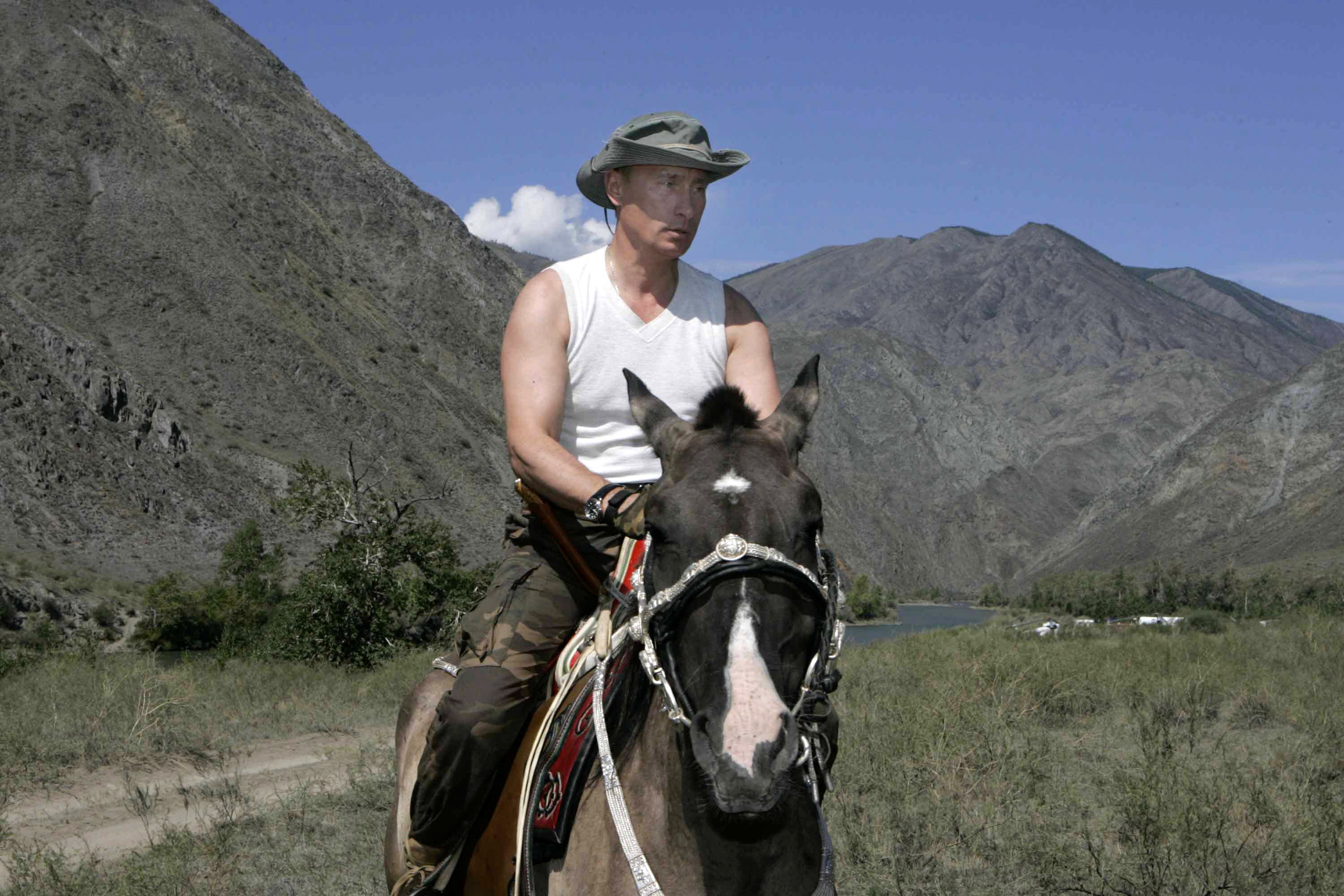Putin was a bloodthirsty opportunist right from the start
Who Vladimir Putin is – and what he is capable of – was there for all to see in the very early days


Your support helps us to tell the story
From reproductive rights to climate change to Big Tech, The Independent is on the ground when the story is developing. Whether it's investigating the financials of Elon Musk's pro-Trump PAC or producing our latest documentary, 'The A Word', which shines a light on the American women fighting for reproductive rights, we know how important it is to parse out the facts from the messaging.
At such a critical moment in US history, we need reporters on the ground. Your donation allows us to keep sending journalists to speak to both sides of the story.
The Independent is trusted by Americans across the entire political spectrum. And unlike many other quality news outlets, we choose not to lock Americans out of our reporting and analysis with paywalls. We believe quality journalism should be available to everyone, paid for by those who can afford it.
Your support makes all the difference.It was September 1999. The phone rang at 6am in my apartment in the Chistye Prudy neighbourhood of Moscow with news that an apartment building in the southern part of the city had been destroyed in an explosion. It was the second in four days.
When I arrived at the scene, all that remained of the eight-story building was a smoking hole, surrounded by a pile of bricks and debris from apartments: furniture and appliances, toys, scraps of clothing. In the crowd, gaping in shock at the crater that had once been their neighbours’ homes, I met some schoolchildren, two boys, maybe 13 years old, who said their friends lived in the building.
“Are they dead?” they asked me.
“Ya neznayoo,” I told the boys. I don’t know.
But I did know. Almost everyone who was in the building, 119 people, had died.
Answering this question, posed by children, was not something my hard-bitten journalistic training had prepared me for. I find myself thinking of this moment, this interaction, more and more as I watch the pointless killing and destruction in Ukraine.
I started covering Russia in earnest during the presidential election of 1996 that returned Boris Yeltsin to power, moving to Moscow in 1997 from Prague, where I had covered post-Soviet eastern Europe. My first years in Russia were mainly about finance and investing, though stories like this bombing were increasingly common by 1999.
Soon, Moscow mayor Yury Luzhkov arrived and held a press conference.
“The explosions are caused by those bandits from the Caucasus,” Luzhkov said. “The first job of the government is to blockade Chechnya so that they don’t show their faces here under any circumstances.”
Most Russians I knew believed the series of bombings in 1999 were “false flags” intended to give Vladimir Putin – a former KGB agent appointed prime minister just a month earlier – a reason to restart the war in Chechnya. Most Russians I know still believe that today.
I was perfectly willing to accept the Russian government would use the bombings – whoever was responsible – as a pretext for going back into Chechnya. I’m a journalist, after all, and cynicism comes with the territory. But thinking of those people murdered in their beds, I just couldn’t fully accept the government was responsible for the bombings.
In any case, Putin was talking about returning to Chechnya that very week. In early 2000, he even flew a MiG to the capital, Grozny, the quintessential image of a fighting man ready to rain down retribution on Russia’s enemies during his campaign for president.
Around Moscow, placards in subways and on the sides of buildings asked citizens to report anything suspicious, such as open windows on ground floors of buildings. Russian troops – in most cases 18 or 19-year-old conscripts armed with automatic weapons – were stationed on every street corner. I tried to engage the ones at the end of our block in conversation, but they were both clearly drunk.
It made me feel less safe. More paranoid than usual, even, for an American journalist working in Russia.
Then one day as I was coming home, I noticed an open basement window in my building and I thought, is the smart move to report this? Or is that the dumb move, essentially saying, “Here’s a convenient target”?
I didn’t report it.
That night, as I lay in bed, my infant son in his nursery in the room next door; it was like I could sense the presence of a bomb in the basement of my building, radiating so much heat I could feel it on my back from two floors below me. I didn’t sleep much for weeks.
An air of suspicion, paranoia, cynicism and outright fear was just part of living in Moscow.
On New Year’s Eve of that awful year of bombings, Yeltsin resigned, appointing Putin as acting president, and setting him up to run for election in spring as the incumbent. Every day Putin was giving judo demonstrations, hunting in Siberia, flying fighter jets and talking tough about Chechnya. In the Bloomberg Moscow bureau, we called him “Action Man.”
The strongman image was especially effective after Yeltsin, who walked slowly and stiffly because of a bad back, and was frequently intoxicated. When he had run for re-election in 1996, I remember footage of him riding a snowmobile on vacation and it really looked like he was strapped to the machine, just a body flopping around. Then came Putin, bare-chested, on horseback.
If the apartment bombings were false flags, they served Putin’s purposes. He was elected president, the Chechen war was restarted, the capital, Grozny, was leveled and a pro-Kremlin leader was installed.
To keep up to speed with all the latest opinions and comment sign up to our free weekly Voices newsletter by clicking here
While the Yeltsin years were chaotic and corruption was rife, there was also an air of hope, a sense that slow progress was being made in the former totalitarian state’s transformation to a democratic society. Western investors and lenders threw parties and Siberian companies raised capital.
Then came the financial collapse of 1998, and a series of governments – Yeltsin tended to fire prime ministers on Fridays, so we never made lunch plans – until August 1999, when he appointed Putin prime minister.
Now, watching the invasion of Ukraine, I think back on that horrible day in 1999, just a month after Putin’s appointment, when I couldn’t bring myself to tell those boys what they most likely already knew. I see Putin from the perspective of 22 intervening years. Chechnya. Syria. Ukraine. The assassinations of political opponents and journalists at home and abroad.
I realise that by that day in September 1999, the dream of Russia joining the democratic family of nations was already dead.
Rob Urban is a former Moscow bureau chief for Bloomberg News
Join our commenting forum
Join thought-provoking conversations, follow other Independent readers and see their replies
Comments